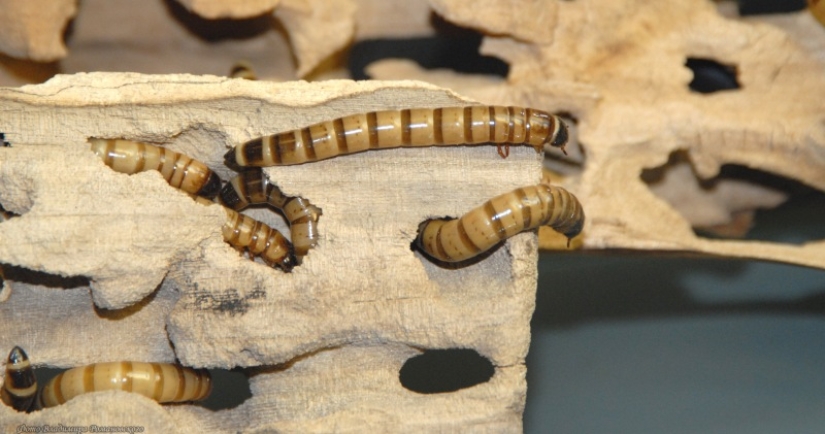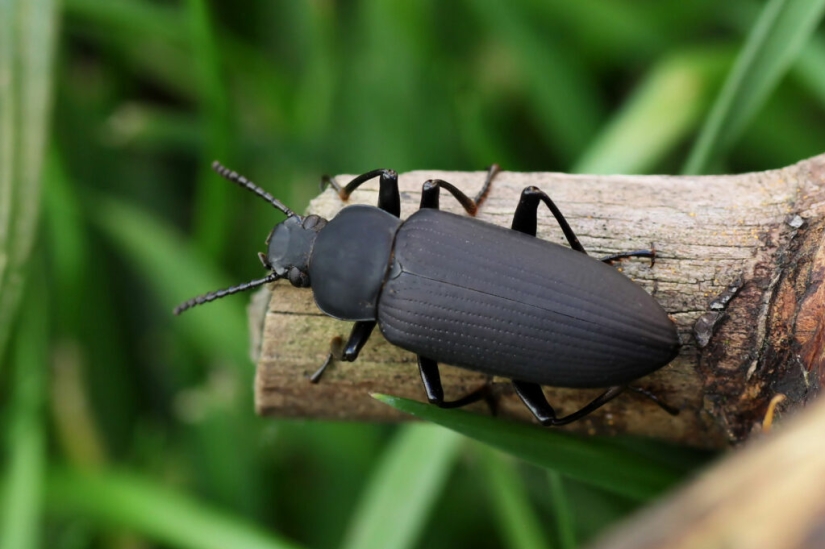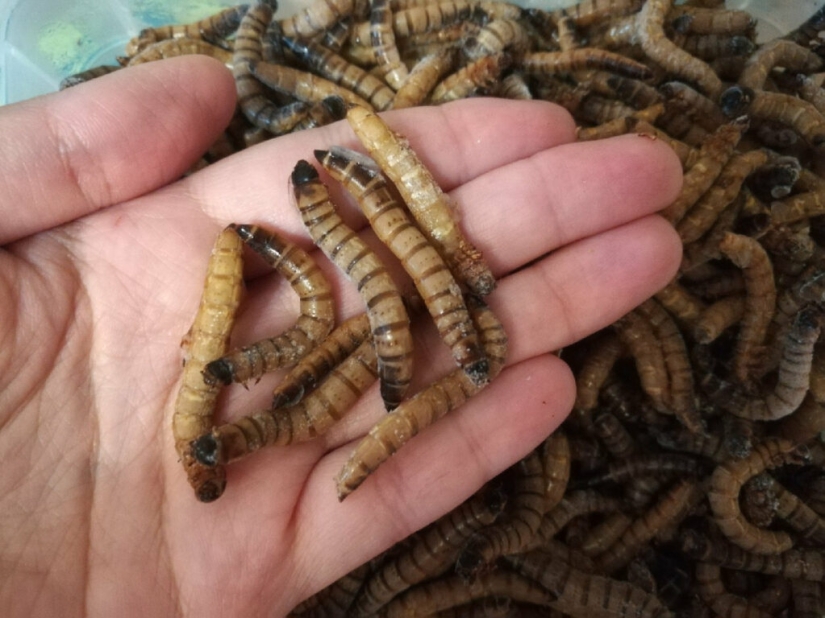To be a clean planet! Scientists have discovered worms that devour plastic
The best minds on the planet are looking for a way to safely and efficiently dispose of plastic. Now this is one of the most important problems related to environmental protection. But nature has ready-made solutions and scientists never cease to be surprised by her resourcefulness. Biologists at the Australian University of Queensland have found worms that can feed on plastic and completely recycle it.

The results of the study by Australian scientists were published in the journal Microbial Genomics. The article says that the larvae of Zophobas morio beetles can eat plastic and completely digest it. This is made possible by special enzymes contained in the intestine. They are so effective that they digest polystyrene without residue.

Nowadays, polystyrene is one of the most serious threats to the ecology of the planet. This is a common type of plastic from which packaging, disposable tableware and CD boxes are made. Polystyrene recycling is a complex and expensive process. That is why most of this material does not become recyclable, but gets into the environment.
Hundreds of thousands of tons of polystyrene ends up in landfills and in the ocean, causing irreparable damage to ecosystems. Therefore, the ability of zofobas larvae to feed on this plastic may eventually become a solution to the problem. Zophobas morio is a widespread insect species on our planet. It is popularly called simply — the black beetle. They are specially bred, since the larvae of this beetle are excellent food for birds and reptiles.

Studying zofobas, biologists from Australia offered different diets to larvae for three weeks. One group was given bran, another was given polystyrene, and the third was not fed at all. To their surprise, the scientists saw that the larvae can feed on one plastic. Moreover, they managed to gain weight on this dubious feed!
This suggests that the larvae can get nutrients from plastic by splitting dangerous chemical compounds in the intestine. Although these worms are very voracious, to solve the problem of plastic, even on a city scale, they will need a huge amount. Nevertheless, biologists consider their discovery very important, because it gives hope for a solution to the problem.
Recent articles

It's high time to admit that this whole hipster idea has gone too far. The concept has become so popular that even restaurants have ...

There is a perception that people only use 10% of their brain potential. But the heroes of our review, apparently, found a way to ...

New Year's is a time to surprise and delight loved ones not only with gifts but also with a unique presentation of the holiday ...